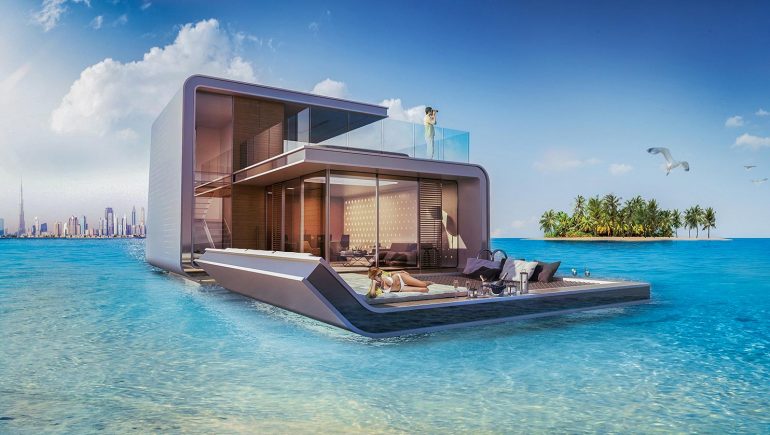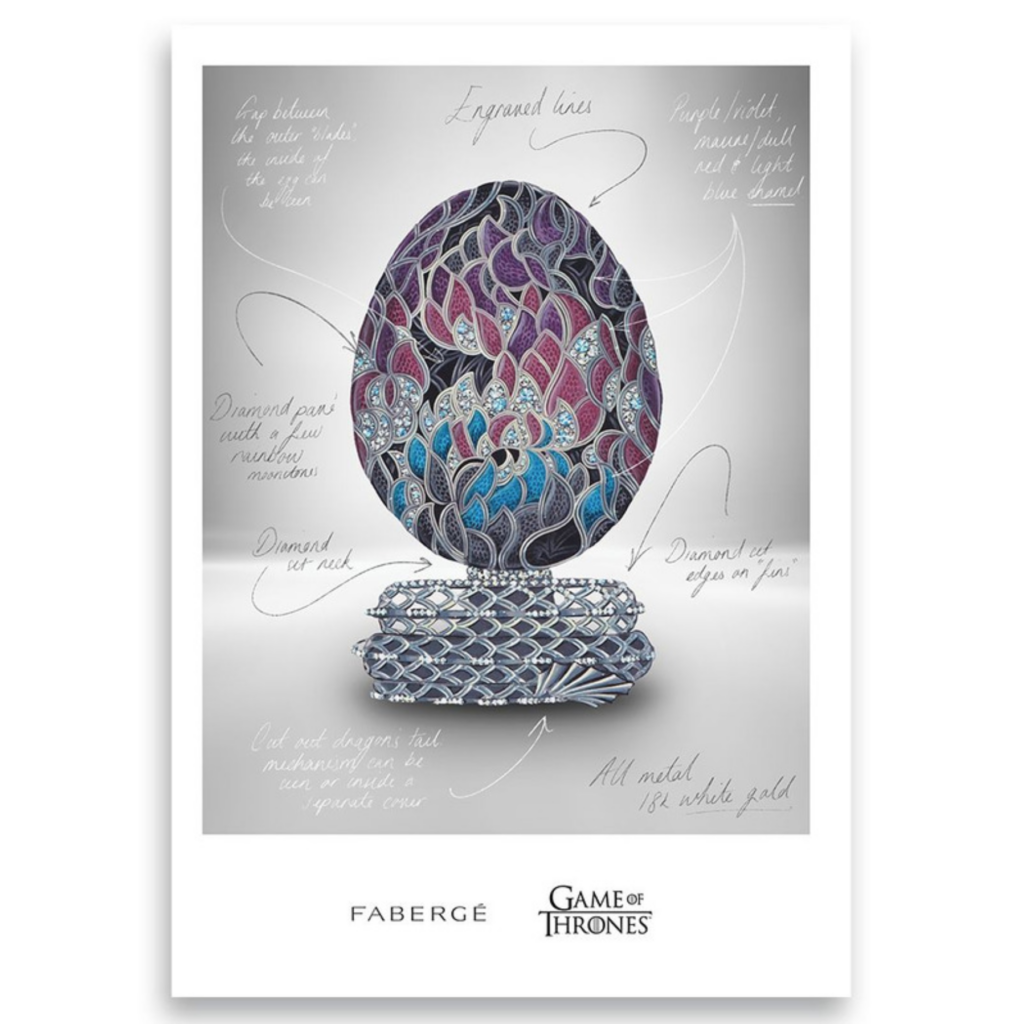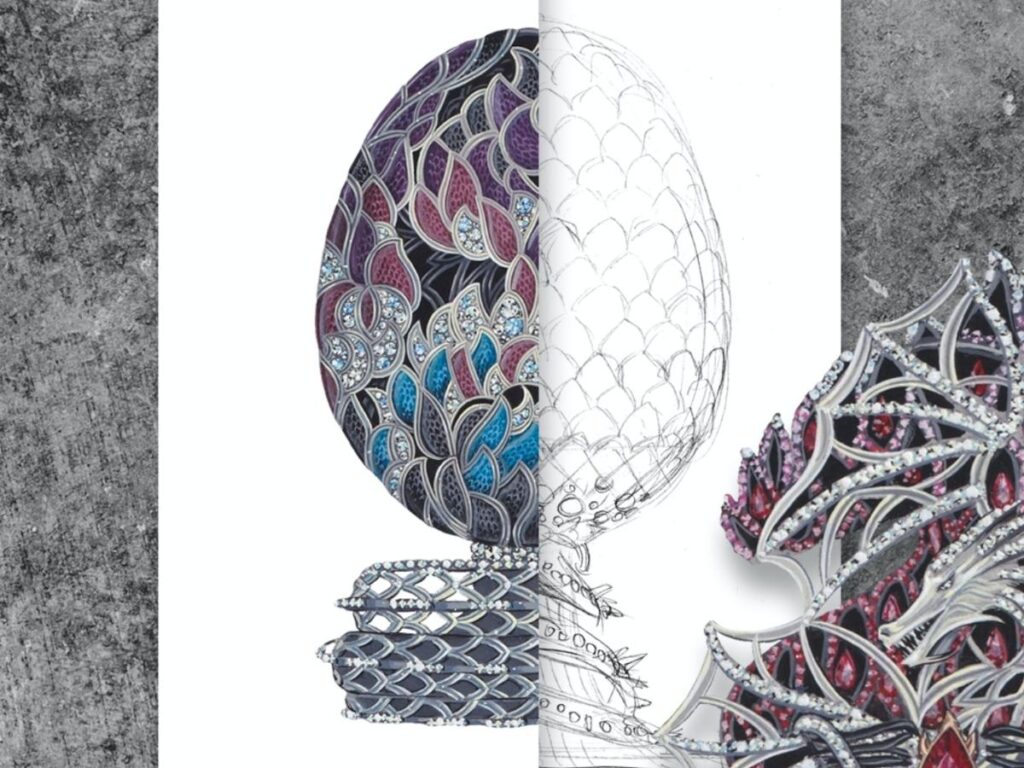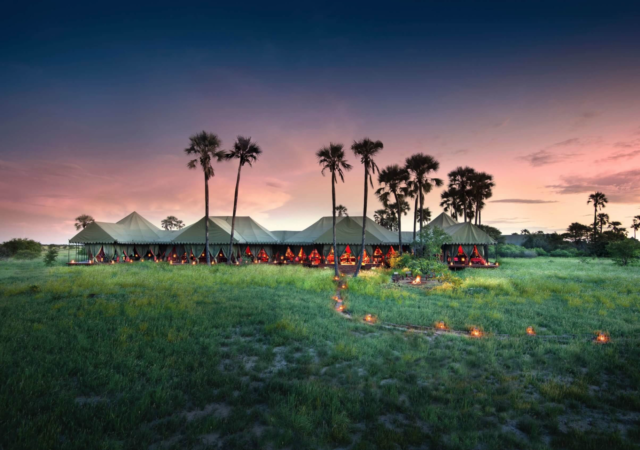The first of more than 100 partially submerged villas has been completed two miles offshore.
Dubai has never been…shall we say,understated: The city sports indoor ski-slopes, the world’s largest shopping mall and tallest building, manmade islands in the shape of palm trees, and people in jetpacks zooming over the futuristic skyline.
Now, developers are moving underwater for the latest innovations in luxury and extravagance. Local architects have plans for an underwater tennis court and the Atlantis, The Palm resort is already host to ultra-luxe underwater suites and an aquarium that once included a captive whale shark (released in 2008). Not to be outdone, Kleindienst Group, a real estate developer, has revealed the first of a planned 131 floating villas, part of their work on The World, a manmade archipelago off Dubai’s coast in the shape of Earth’s continents.
The ‘Floating Seahorse’ villas will be part of the group’s work on The Heart of Europe—a section of The World that includes “European” islands with names like Germany, Switzerland, and St. Petersburg, and climate-controlled environments that will include snow-lined streets, even as summer temperatures surpass 100 degrees Fahrenheit.
Plans for the Floating Seahorse villas were released last year, but now the first prototype has been built and will be ready for visitors as early as this fall, according to the Daily Mail.
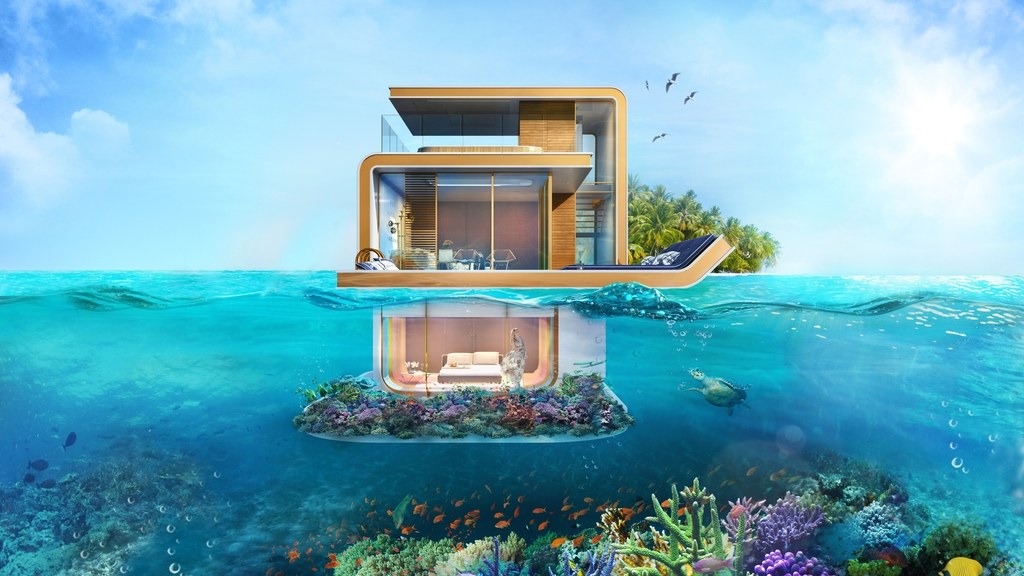
Plans for the villas were first released last year—and now a prototype has been built.
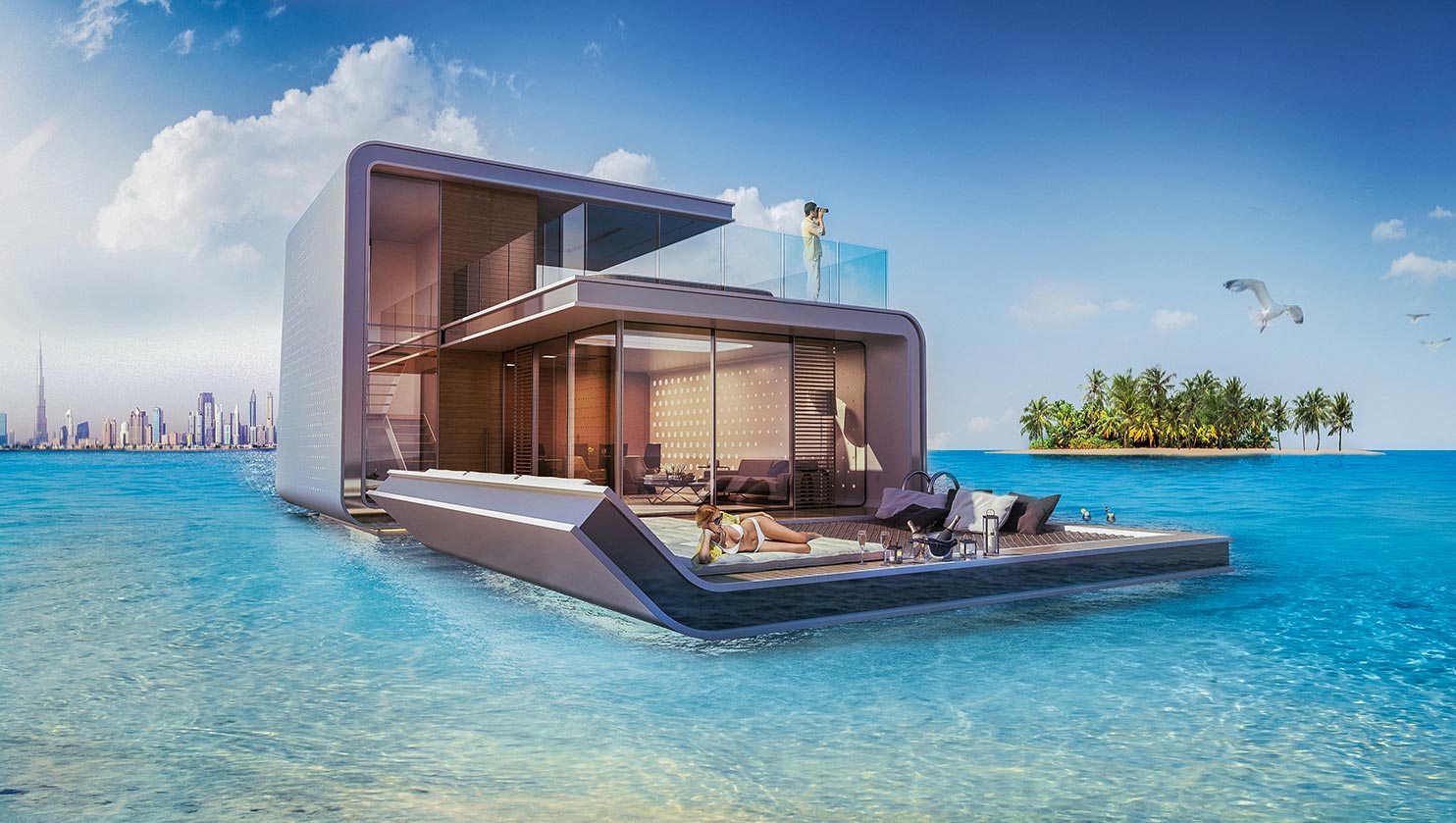
Plans for the villas were first released last year—and now a prototype has been built.
The villas, which each cost about $3.2 million to build, will vary in size, but the standard layout will consist of three levels. On the lower level, guests can view the marine life living in artificial coral gardens (currently being built by the developers), through floor-to-ceiling windows in the bedrooms and bathroom. A middle level hosts all the amenities of a modern home—plus a sundeck and plunge pool. And finally, as if all this wasn’t enough, the upper level includes a glass-bottom hot tub from which visitors can take in views of the sea and Dubai’s skyline.
Those afraid of island isolation needn’t worry: The villas come equipped with Wi-Fi, a television, and a butler service, and 90 of the buildings will be connected to the heart-shaped St. Petersburg Island. In the first phase of the project, 42 villas—already sold out—will be completed by the end of 2016,according to the Kleindienst Group. All 131 are slated to be built by 2018.
The engineering feat—the latest in an ever-evolving game of “Top this!”—is staggering on its own, but it’s even more impressive when you consider that Dubai didn’t have electricity until the 1950s. With the help of oil revenue coming in from its neighboring Emirate Abu Dhabi, the city first established itself as a financial hub for the Middle East, and increasingly as a theme park for adults. Its appeal as a tourist destination only seems to be increasing: visitors increased by 5 percent to 4.1 million peoplein the first quarter of this year.
Despite the plummeting price of oil and existential threats caused by climate change, Dubai shows no signs of slowing down either. Among other marvels, the city has plans for the world’s largest twin towers and biggest ferris wheel—all of which leaves us wondering, what could possibly be next?
Source: cntraveler.com


